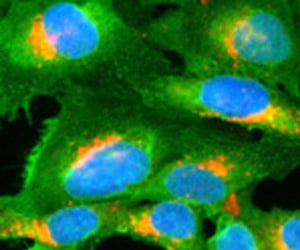 Cytokines are small proteins that are produced by cells of the immune system. They play a vital role in regulating the immune response, inflammation, and tissue repair. Cytokine study in the labs is a powerful tool for understanding the mechanisms of disease and developing new treatments.
Cytokines are small proteins that are produced by cells of the immune system. They play a vital role in regulating the immune response, inflammation, and tissue repair. Cytokine study in the labs is a powerful tool for understanding the mechanisms of disease and developing new treatments.
What are cytokines?
Cytokines are a diverse group of proteins that are produced by cells of the immune system, as well as by other cells in the body. They are involved in a wide range of biological processes, including:
- The immune response: Cytokines help to coordinate the immune response to infection and injury. They do this by signaling to cells of the immune system to move to the site of infection, to divide, and to produce more cytokines.
- Inflammation: Cytokines are involved in the inflammatory response, which is the body's way of protecting itself from injury and infection. They do this by causing blood vessels to dilate, increasing blood flow to the affected area, and recruiting immune cells to the site of inflammation.
- Tissue repair: Cytokines also play a role in tissue repair. They help to stimulate the growth of new cells and the production of new blood vessels.
How are cytokines studied in the labs?
There are many different methods for studying cytokines in the labs. Some of the most common methods include:
- Enzyme-linked immunosorbent assay (ELISA): This is a simple and sensitive method for detecting and quantifying cytokines in biological fluids. ELISA is used to measure the levels of cytokines in blood, serum, plasma, and other body fluids.
- Flow cytometry: This technique can be used to measure the levels of cytokines in individual cells. Flow cytometry is used to measure the levels of cytokines in cells of the immune system, such as white blood cells.
- Western blotting: This method can be used to detect and quantify cytokines in tissue samples. Western blotting is used to detect the presence of cytokines in tissue samples, such as biopsies of inflamed tissues.
- Mass spectrometry: This technique can be used to identify and quantify all of the cytokines present in a sample. Mass spectrometry is used to identify the different types of cytokines that are present in a sample, as well as their concentrations.
How has cytokine study in the labs helped us to understand disease?
Cytokine study in the labs has helped us to understand the mechanisms of many diseases, including:
- Cancer: Cytokines play a role in both the initiation and progression of cancer. Cytokine study has been used to identify new targets for cancer therapy. For example, the cytokine IL-6 has been shown to promote the growth of cancer cells.
- Inflammatory diseases: Cytokines are involved in the inflammatory response to infection, injury, and autoimmune diseases. Cytokine study has been used to develop new treatments for these diseases. For example, the cytokine TNF-α has been shown to play a role in the development of rheumatoid arthritis.
- Autoimmune diseases: Cytokines are involved in the development of autoimmune diseases, such as rheumatoid arthritis and multiple sclerosis. Cytokine study has been used to identify new targets for therapy. For example, the cytokine IFN-γ has been shown to play a role in the development of multiple sclerosis.
- Infectious diseases: Cytokines play a role in the immune response to infection. Cytokine study has been used to develop new vaccines and treatments for infectious diseases. For example, the cytokine IL-12 has been shown to be effective in treating some types of infections.
What are the future directions of cytokine study in the labs?
Cytokine study in the labs is a rapidly evolving field. New methods are being developed all the time, and our understanding of the role of cytokines in disease is constantly growing. This research has the potential to lead to new and improved treatments for many diseases.
Some of the future directions of cytokine study in the labs include:
- The development of new methods for detecting and quantifying cytokines: This will allow scientists to study the role of cytokines in disease in more detail.
- The study of the role of cytokines in specific diseases: This will help scientists to develop new and improved treatments for these diseases.
- The development of new drugs that target cytokines: This could be a promising new approach to treating diseases that are caused by imbalances in cytokine levels.
Cytokine study in the labs is a complex and challenging field, but it is also a very rewarding one. By understanding the role of cytokines in disease, scientists can develop new and improved treatments that will help people live longer and healthier lives.
If you are a research lab using cytokines, contact SBH, We have been an Industry Source for Cytokines and Biologics for over 25 years - Buy Direct from the Source and Save!


